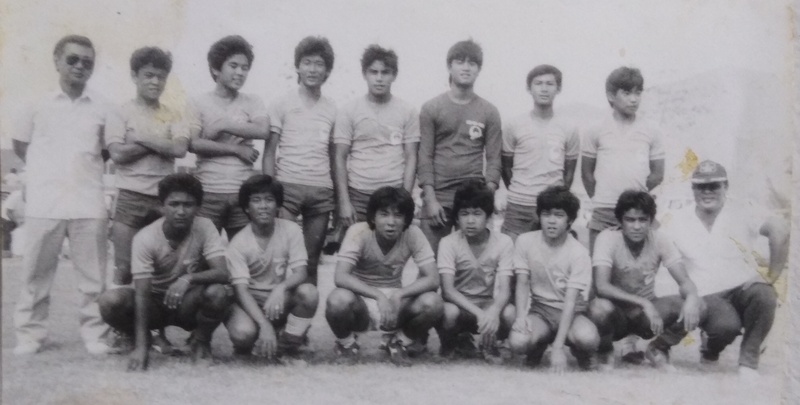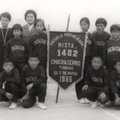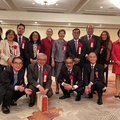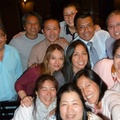Recently, a sansei was talking to me about problems he had at work when he suddenly used the word “ dojin .” I felt teleported to the 1980s, when it was an everyday term in my family and around me. So I didn't know exactly what it meant (I found out much later), but I was clear about who it meant: “them,” the Peruvians who did not have Japanese ancestry.
Without knowing its real meaning, I realized that the word was often used in a pejorative way. That is, it was not only used to refer to those who were “different”, but also to express a certain disdain, which was accentuated when it came to people of Andean or Afro origin.
In those days I don't think anyone noticed that. I mean that “ dojin ” was as commonly used as “ gohan ”, for example, to refer to food. It was something natural in the environment, almost like the air we breathed. Then we grew up and realized that it was wrong, so much so that its use is practically banned today, except for exceptions like the one mentioned above.
There was another word that I heard less frequently, but that had a devastating derogatory connotation: “ inaka ”, to refer to people from the Peruvian Sierra. If with “ dojin ” I was not always sure that it was used to refer to someone in a negative way, with “ inaka ” there was no doubt.
I remember that after a Nisei friend of my father married a “ dojin ”, a relative, worried and incredulous, he asked himself “but what happened to him?”, as if he had lost his mind or made a moral failure. In these times, that would be unthinkable.
When I was a child, the word “ nikkei ” was not used (at least I didn't know anyone who used it) and if one referred to a member of the community they said “ nihonjin ”, something that no one does today.
In these more than 30 years there has been a positive evolution in the use of language that reflects a change in attitude and mentality. At this point, I think the vast majority are aware that there are offensive terms that should not be used.
A DILUTING BORDER
The use of “ nihonjin ” and “ dojin ” established a boundary: us and them. It seems to me that this dividing line, although it is no longer as evident as before, still persists among some Nikkei. For me it existed when I was a child and teenager, before I went to Japan, but it disappeared there. Or, to be more precise, I would say that it remained the same but the roles changed: we were the Peruvians (Nikkei or not, that didn't matter) and they were the Japanese.
In any case, that dividing line that marked my childhood and adolescence has been completely erased. Whether it's Peruvians, Japanese, Malaysians or Russians, I no longer believe in any us or them (except in soccer games, when I generally align myself), because instead of conceiving ourselves as tribes, of thinking of ourselves as monolithic ethnic groups, I prefer See ourselves as individuals, with unique and unrepeatable characteristics.
Dividing people into us and them also runs the risk of you believing your group is better than the others. Yes, you can love and value the land where you were born, the community to which you belong, but that does not make you superior to others.
Why do I say this? Because I remember that when I was a child, being a Nikkei automatically made you honest, as if honesty had been invented by the Japanese and their descendants had inherited it. And the “ dojin ”, well, they were not so honest. Then you grow up and find out that honesty has no nationality or skin color.
That does not mean ignoring that Japanese immigrants in Peru stood out for embodying values such as honesty. Absolutely. What I mean is that being Nikkei does not necessarily make you honest. It may be, as well as not. As in any human group.
OPEN THE EYES
My experience in Japan was fundamental to understanding Nikkeidad from a broader perspective. In Japan I discovered that the Nikkei world in which I had been living in Peru—where if you didn't know everyone, you knew someone's cousin, uncle, or friend, which meant that in practice everyone was known—was actually actually a bubble.
First, because Lima is not Peru and in Japan I met many Nikkei from the provinces. And second, because the majority of Nikkei that I met there had not had any contact with the Japanese Peruvian community in Peru; That is to say, he had never played soccer or gone to the pool at AELU, he did not say “ obenyo ” instead of “bathroom”, he did not address a lady as “ nesan ”, etc. They didn't fit into what I believed to be the Nikkei canon. For me, being Nikkei, as a child, meant asking a friend or acquaintance “what is your ' sonjin '?”, and answering “Nago” when asked, as if everyone had Okinawan origins.
That was good—I mean the experience in Japan—because it opened my eyes to a more diverse, richer, and complex world than I had imagined. In that newly discovered world, terms like “ dojin ” had no place.
However, I do not criticize the sansei with whom I began the article and who used the word while discussing his work problems, because it has been part of our vocabulary since we were little, and sometimes it can be difficult to detach ourselves from childhood habits.
Now, even though the word may have escaped him, the fact that he used it means that for him there is still an “us” and a “them.” From what I understood from the story of his work problems, “we” are punctual and compliant; “they”, unpunctual and unfulfilled. I know “we” are unpunctual and “they” are punctual, so it cannot be generalized.
In short, growing also means unlearning. You add things to your life, but you also take away others. Like the word “ dojin ”.
© 2019 Enrique Higa






